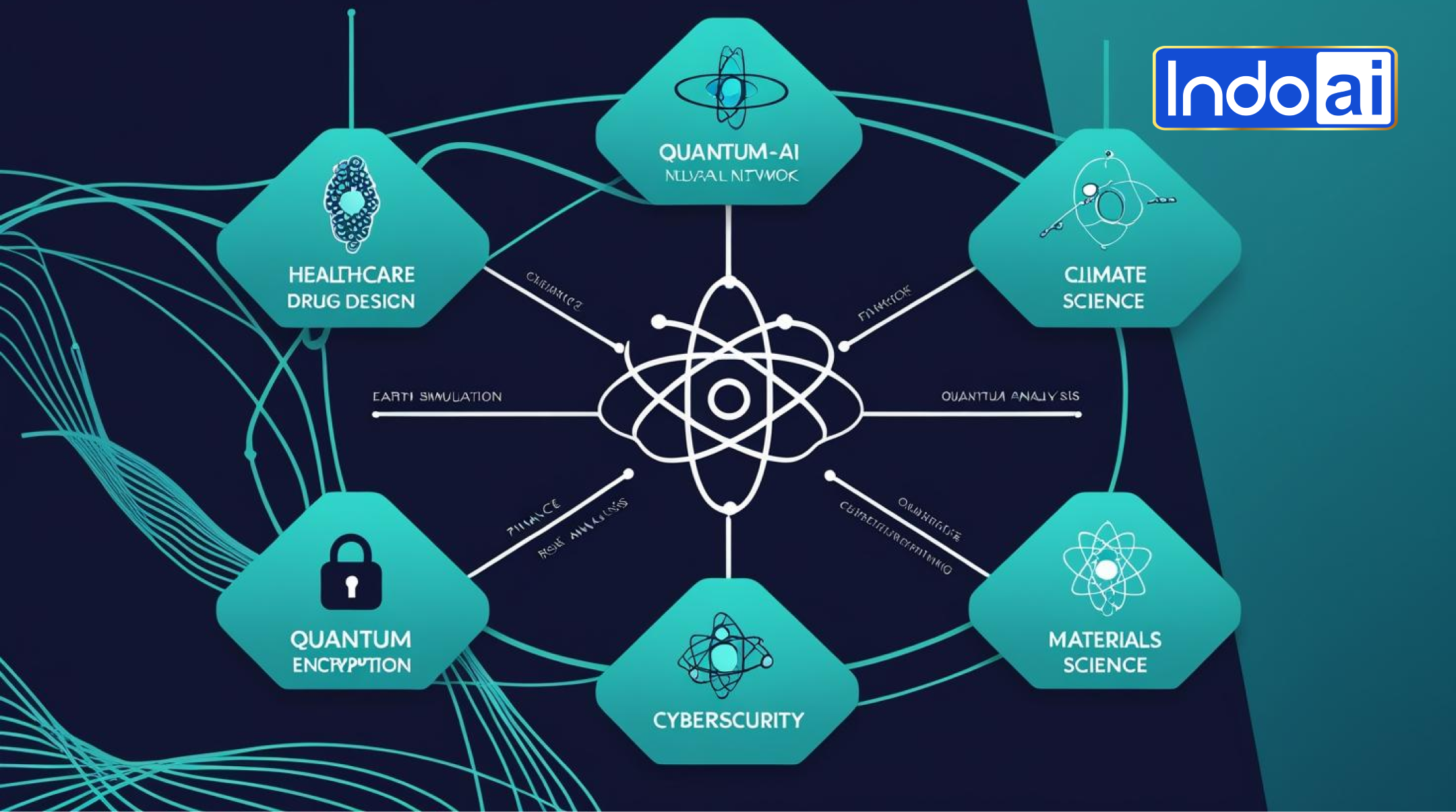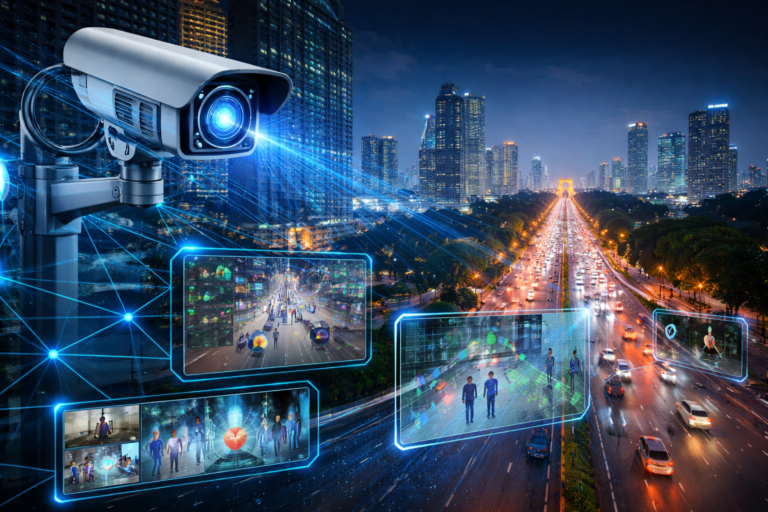The dawn of 21st century has marked a pivotal era of technological evolution, ie rise of Artificial Intelligence (AI) and Quantum Computing. These two groundbreaking technologies are not just advancing independently but are redefining industries, societies and of human interaction with technology.
Artificial Intelligence has seamlessly integrated into daily life, powering applications from virtual assistants and recommendation systems to autonomous vehicles and precision medicine. AI’s proved to process vast amounts of data, identify patterns, and make informed decisions has transformed sectors such as healthcare, finance, education, and manufacturing. By enabling predictive analytics and automation, AI is driving efficiency and innovation, laying the foundation for a smarter, more interconnected world. Additionally, advancements in AI ethics and explainability are ensuring that these technologies are both effective and equitable.
Parallelly, Quantum Computing is breaking traditional barriers of computational capability. Harnessing the principles of quantum mechanics, quantum computers perform complex calculations exponentially faster than classical computers. This capability is set to revolutionize areas like cryptography, material science, logistics and drug discovery. By solving problems previously deemed intractable, quantum computing is unlocking possibilities that were purely theoretical until now.
The convergence of AI and Quantum Computing promises unprecedented synergies. Quantum-AI could exponentially accelerate learning algorithms, making real-time decision-making and hyper-personalization a reality. Conversely, AI’s optimization capabilities could streamline quantum algorithms, enhancing their practical utility.
Together, these technologies are not just tools but catalysts for a future defined by innovation, sustainability, and human empowerment. As we stand at the threshold of this transformation, the 21st century will be remembered as an age where humanity transcended its limitations, guided by the limitless potential of AI and Quantum Computing.
Recently found a speech from Steve Jobs is interesting take on AI , he says, “When the next Aristotle comes around, maybe if he carries around one of these machines with him his whole life, his or her whole life, and types in all this stuff, then maybe someday after the person’s dead and gone, we can ask this machine, ‘Hey, what would Aristotle have said?”
Musk envisions Quantum AI as a convergence of quantum computing’s immense processing power with AI’s problem-solving as tabulated below:

A Historical Perspective
The seeds of AI were sown in the mid-20th century, by Alan Turing and John McCarthy laying the groundwork for what would become a powerful tool. Early AI systems were limited by computational power, but as technology progressed, so did the capabilities of AI. Today, AI is ubiquitous, powering everything from self-driving cars to medical diagnosis.
Quantum Computing, on the other hand, is a relatively nascent field, rooted in the principles of quantum mechanics. Unlike classical computers, which use bits to represent information as either 0 or 1, quantum computers utilize qubits, which can exist in multiple states simultaneously due to a phenomenon known as superposition. This allows quantum computers to process information exponentially faster than classical computers.
The Convergence of AI and Quantum Computing
When Artificial Intelligence (AI) and Quantum Computing work together, they create exciting new possibilities. This synergy combines the smart decision-making of AI with the incredible speed and power of quantum computers. Together, they can solve problems that were too difficult to handle before.
Here are some ways AI and Quantum Computing could change the world:
- Finding New Medicines: Quantum computers can help scientists understand how molecules interact, making it easier and faster to discover new drugs. Building a new molecule in lesser time as AI can analyze huge amounts of medical data to suggest the best drug designs.
- Creating Better Materials: Quantum computers can study materials at the atomic level to help develop new ones with amazing properties, like materials that conduct electricity without resistance. AI can help pick out the most promising materials for further testing.
- Understanding the Climate: With their power, quantum computers can simulate the Earth’s climate in great detail, helping predict changes and create solutions to fight climate change. AI can sort through this data to find patterns and trends.
- Improving Finances: Quantum computers can solve complicated financial problems, like figuring out the best investments or reducing risks. AI can analyze market trends to spot opportunities and predict what might happen next.
- Boosting Cybersecurity: While quantum computers might crack today’s encryption, they can also help create new, super-secure methods. AI can monitor for cyber threats and respond quickly to protect data.
- Together, AI and Quantum Computing could lead to breakthroughs in science, technology, and everyday life that we can only imagine today.
Challenges and Roadblocks
The future of AI and Quantum Computing holds incredible potential. One of the most significant challenge is the complexity involved in building and maintaining quantum computers. Unlike classical computers, quantum computers rely on quantum bits or qubits, which can exist in multiple states simultaneously due to the principles of superposition and entanglement. However, qubits are extremely fragile and highly sensitive to their environment. Even tiny disturbances, such as temperature fluctuations, electromagnetic noise, or vibrations, can cause “quantum decoherence,” where the qubits lose their quantum state. Maintaining a stable quantum system requires advanced cryogenic technology to keep these systems at near-absolute-zero temperatures and a tightly controlled environment, which is both costly and technically demanding.
Beyond the hurdles, creating software for quantum computers comes with its own unique challenges. Quantum computers function differently from classical computers, necessitating the use of specialized quantum algorithms to tap into their distinct capabilities. The development of these algorithms is intricate and still largely unexplored, demanding knowledge of both quantum mechanics and computer science. Existing quantum algorithms, such as Shor’s algorithm for large number factorization and Grover’s algorithm for search queries, illustrate the promise of quantum computing. Nonetheless, broadening this set of algorithms to tackle real-world issues in various fields like drug discovery, materials science and logistics presents a considerable challenge.
Moreover, integrating AI with quantum computing adds another layer of complexity. While AI models are computationally intensive, adapting them to quantum architectures demands innovations in quantum machine learning—a field still in its infancy.
Despite these challenges, researchers and companies worldwide are making steady progress, developing more robust quantum systems and algorithms. Overcoming these obstacles will be crucial to unlocking the transformative potential of AI and quantum computing.




